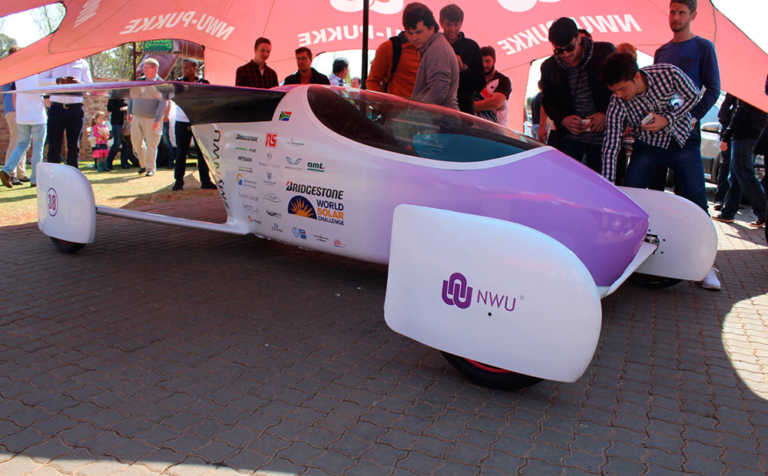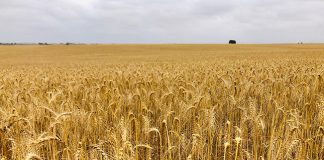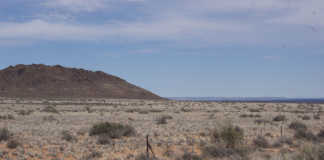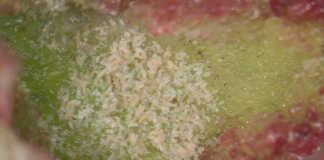
Naledi, meaning ‘star’ in Sesotho, boasts a new design, based on the JS3 Jonker Sailplane that also has its roots in the Faculty of Engineering, giving it good aerodynamic attributes, said Professor Albert Helberg, team captain.
“Most of the other cars use a catamaran-style design, but we are thinking completely out of the box, using a design not seen since the 1980s with modern material and aerodynamic knowledge that we believe can vastly improve upon previous performances,” he added.
The gruelling challenge starts in Darwin, in Australia’s Northern Territory, and ends in Adelaide, the capital city of South Australia, about 3 000km away.
Helberg said in a statement that the allowed number of solar panels had been reduced to 4m² compared with the 6m² allowed in previous Bridgestone journeys.
To compensate for this reduction of a third of the possible power that can be generated, the team from NWU will be using solar tracking technology; the panels will be able to rotate as the car moves, keeping them at the best angle to the sun at all times.
Helberg added that their biggest challenge en route would be heat, as the territories’ high temperatures would reduce the solar panels’ efficiency.
The vehicle would also have to avoid freight trucks and cope with severe winds; “However, we have a very stable design and I am positive that we will be able to cope with all the challenges,” he said.
In the 2016 race NWU achieved the longest distance by a South African team, the longest daily distance by a South African team, won the Team Professionalism and Safety Award as well as the Spirit of Africa award in the Sasol Solar Challenge.
Dr Jack Armour, Free State Agriculture (FSA) operational manager, said FSA welcomes all technology that does not harm the environment.
He said renewable energy is essential to protect SA’s soil and water resources for generations to come, and that “the Free State, among others, is ideally suited for the construction of so-called wind and solar farms. SA needs to move away from fossil fuels as a matter of urgency.”
Follow Naledi’s progress at:
Twitter: @NWUSolarCar
Facebook: NWU Solar Car
Hashtags: #NWUSolarCar #NWUNaledi











